Have you ever wondered how to slope a trap arm (aka the fixture drain)?
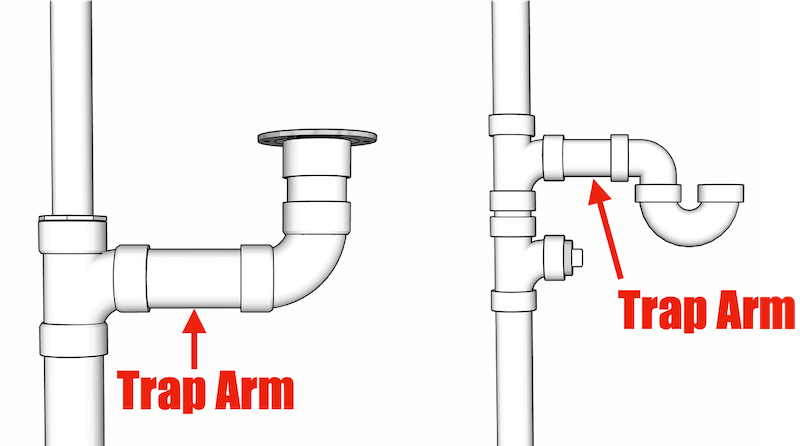
The trap arm is the short piece of pipe between the plumbing trap and the vent.
It’s a valid question…
After all, the plumbing code wants horizontal drains sloped at ¼” per foot…
But how does code expect you to slope a pipe that’s a mere few inches long?
Brute force isn’t going to move a pipe that short.
So what do you do?
The answer is easier than you think…
Let’s first clear up a common misconception:
Most folks think a sanitary tee makes a 90-degree angle…
People also believe quarter bends make 90-degree angles.
But do these fittings create a true 90 degree angle?
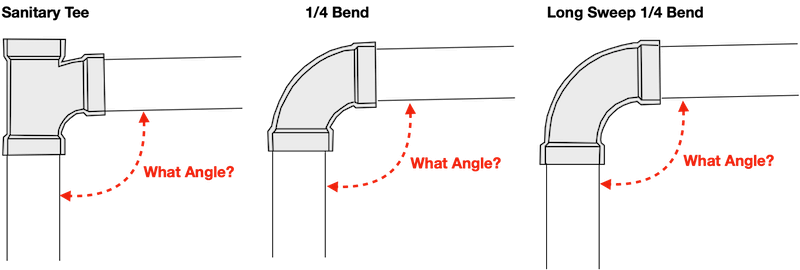
No, those fittings ARE NOT 90-degrees.
The angle they create is found in ASTM D3311.
According to this standard, all 90° fittings must have “built-in pitch” in the sockets.
And here’s the beauty of it all…
This built-in pitch provides horizontal pipes with ¼” per foot slope.
That means a sanitary tee is actually 91.2 degrees…
And a quarter bend is actually 91.2 degrees.
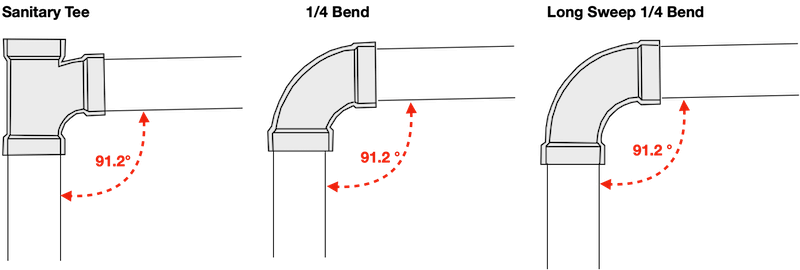
Pretty cool, right?
Keep in mind, DWV fittings that don’t make a 90-degree pattern don’t have built-in pitch.
For example, an eighth-bend (45) does not have built in pitch, it makes a true 45 degree angle.
Also, this pitch does not occur in vent fittings…
The vent 90 (and the vent tee) make true 90-degree angles.
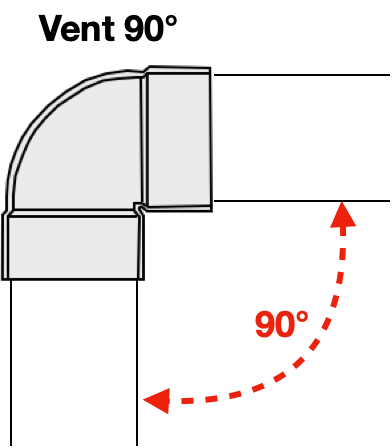
So what’s the secret to sloping a short trap arm?
Install your vertical pipe “plumb” and that short trap arm will have proper slope thanks to the fitting’s built-in pitch.
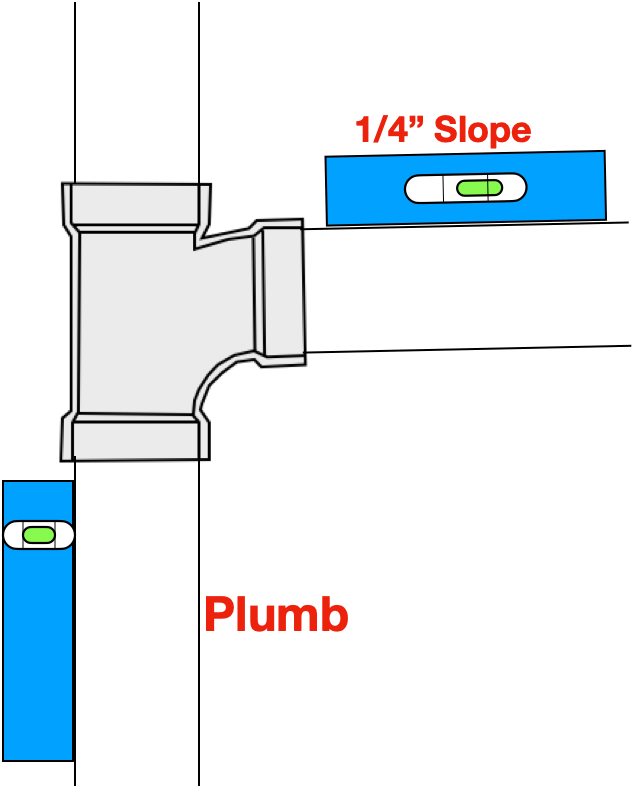
See, it’s easier than you thought!
Here’s another thing that’ll make your life easier…
It’s our massive library of plumbing plans…
And you can get all the details below: